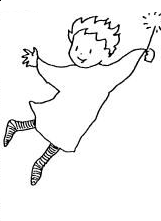Alternativ SPELLING for the MilenniumInternational English SpellingPart 3The first step for English Spelling for this Millennium is Cut out surplus letrs whenevr you like The next steps are to spell consonants sensibly, and reduce patrns to spel vowels to no mor than four each. (See International English Spelling Part 2) Now for further ideas about aids to spel sensibly
1. Gides to PronunciasionJust as speakers pronounce words from TO dictionries with their own
local accents, 1. Long vowels in initial and medial place, and final ù as in menù can be speld with grav accents, mainly as aids for lernrs, and not to be made into a burdn. Most accents can be omitd in adult text. Spelling patrns as in hoping/hopng can distinguish long and short vowels. 2. Consistent conventions for spelling classicl stems
and sufixes i. /sh/ as in pasion spesial tisiu sufisient ii. /tch/ as in question pictur nàtur iii. /zh/ as in vizion trezur iv. -ion can be condensed to -n as in competisn, sujestn , vizn, when preferrd. 3. Unclear vowels i. Omit TO vowels that ar not spoken as in tecnikly, difrent. ii. Sylabic consonants spelt as in
patd, silabl, ansr, but
a vowel can be insertd to iii. Unstressed sound 'schwa' as in her consert. iv. Stressd sound 'schwa' spelld ur as in ocur disturb urbn, girl. v. Unclear vowel in classicl afixes. Consistent 'a'
spelng used as in vii. Unclear vowel in final position is always r or a as in singr, mortr, banana viii. Vowels can be insertd when the sound chanjes as
in 4. Irregular stress in words. i Irregular stress on the second syllabl can be shown by: i. dubld consonants when needed, mainly for lernrs,
e.g. ii. ur as in fraturniti contrasts with fratrnÌz, and purfect with perfect. 5. 'Pronunciation Spellings' - Some words could be
pronounced according to their TO spelling, as they alredy are in some
dialects: e.g one (TO) could be respeld won, to make a word family of only won wons alon. 6. Dubld consonants are used in only three ways, as needed: i. Final /ss/. denss can be distinguishd from dens, prinsess from prinses. ii. To show irregular stress . comitti distinguishd from comiti. iii. RR to distinguish vowels, mainly for lernrs, as in carrot corral. 5. Words that sound the same (homofones) are speld the same except for five sets where context may not automaticaly direct the meaning: tu-too-tuw, no-kno, for-faur, hol-whol, and 'thay'r putting thair hats over ther'. Pronunciation Spelling might eventualy solv these potential confusions. 6. Forin words may be re-speld when they are suficiently
adoptd into English, eg. Temporary rules while TO fazes out:i. C and K follo th most comn rules in TO. In Initial position: c as
in cat, cot, cut - a o
u-, k as in keg,
kit -e i ii. QU can be gradualy replaced with kw and X with KS if this proves desirabl.
iii A few very common 'sight words' can be temporarily
retaind, eg. iv. Internationl sientific vocabulary from Greek roots such
as pneuma, pseudes, psi and pteris may
retain initial silent letrs to avoid problems of dictionry serches
and recognition e.g. v. No forced respelling of proper names. It is up to their ownrs to decide on changes and how dificult they want their spellings to be. Sampl Texts1. From TH STAR by H G Wellsa) In text for adults, Interspel resembls some pijin spellings. Riters can opt for alturnativ vowel spellings such as maid, weel, lyt, brytr or colons as in exi:tment, li:t, if acsents are unwantd or not posibl, as in emails, or when using singl vowel letrs mìt alow confuzions, as with mad, wel, lit. Running text is 13.5% shortr. 95% of letters and 36% of words are unchanged. Apart from deletions, 79% of words are unchanged or changed by one letter. b) Interspel for beginrs and English language lernrs can use acsents for all long vowels. Iregular stress on second sylabl is shown as in obsurvatrs, perturbd, remòt,erattik. Gravmarks apply here to around 4% of caractrs, one word in five. Only letrs added ir chanjed from TO ar markd in green here.
2. Th BUTIFUL PRINSESS in Interspel for lernrsThis piece is delibratly composed to demonstrate maximum text
changes required to reform TO. Half the words hav irregular TO
spellings. Th SurplusCut version is 8.3% shortr. Interspel is 15.4%
shortr, and changes 8% of letrs, apart from added gravmarks.
3. As a Dictionry pronunciation gide95% of th spellings in this 104 word story cd be used as a dictionry pronunciation gide for beginrs. Tresurs, question, lafd, imajinasion and lovli require rules beyond th basic sound-symbol relationships and of is a 'sight word'. Back to Ozideas Home Page |

 The
Majic Spel 3
The
Majic Spel 3